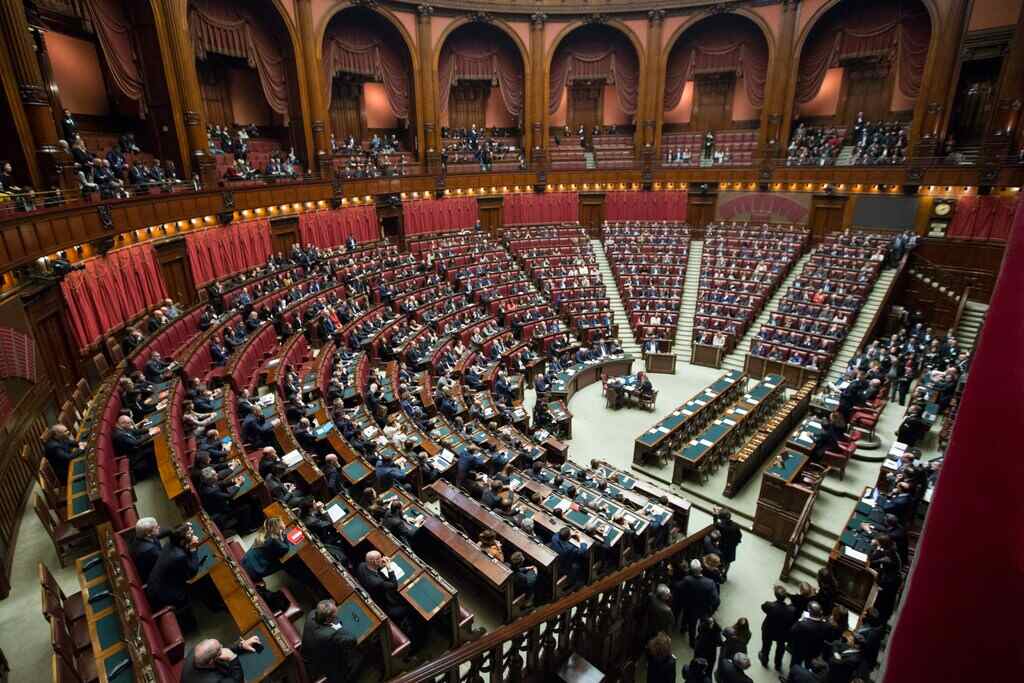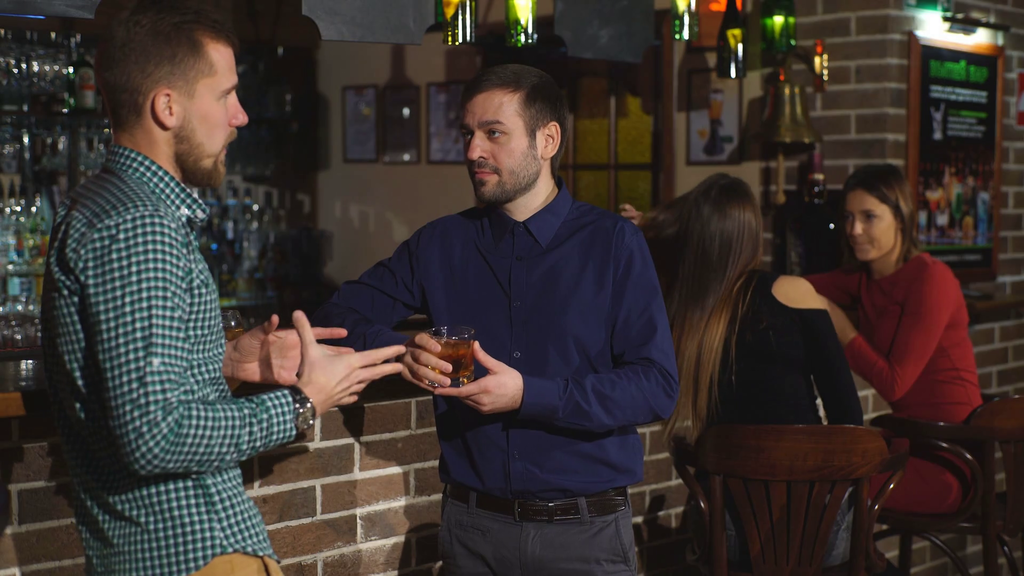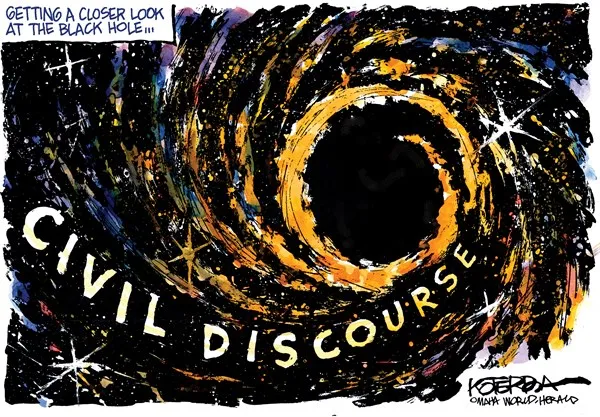I am not political.
At least this is the conclusion I came to on a recent three-week trip to the United States.
Politics isn’t popular
A working-from-home, middle-aged, single mother of three children, has little room in her life for politics. Her concerns are primarily the care of her children, paying the bills and finding some time to relax and kick back a little.
Same goes for the other dozen friends and family I met up with on my way through Texas, Florida and Tennessee. Family, finances and fun were by far the most common topics on people’s minds.
When a conversation did stumble into political ground, it was usually done with noticeable trepidation and with the desire to steer away from the political as quickly as possible.
Most people, it seems to me, are simply not political.
Political media
The three social media platforms I use the most are X, Facebook and YouTube. Partly due to the algorithms feeding me what I tend to view, and partly due to the nature of those platforms, the content I am presented with throughout social media has become increasingly political.
Almost immediately upon arriving in the US, where I had traveled to for holiday purposes, I became completely disinterested in looking at social media. In fact, I recall opening a social media app on my phone, and within seconds I felt annoyed and closed the app. Then and there I thought to myself how curious this was – curious because, previous to having left for holiday, you would have seen me spending hours per day on those social media apps.

And this disinterest, or dislike, for social media did not pass. A week later it was stronger than ever.
Not only was I turned off by social media, but “the media” in general. Even my more beloved news media platforms were of little-to-no interest to me now.
I recall internally asking myself why it was that I had this reaction to sources of information I had so recently found challenging to look away from. The answer was something like “It’s a lot of noise!” The noise of some people vying for power and control over the minds and lives of other people.
At one point someone was watching MSNBC on the TV in the living room, and I could hear the news being delivered. I couldn’t stand it. Every sentence hissed with manipulation, and reeked of lies. ‘And this is how “we” are informed!?’, I remember asking myself.
Political Attraction
These and other recent experiences have made me question the goodness, or value, of politics.
In plain and simple terms, politics is the business, or industry, of producing ideas for government.
Metal plants create various types of metals, so that things like bridges, cars, electronics, etc … can be built, and politics creates various types of ideas so that things like policies, laws, regulations, acts, etc… can be enforced by governments.
Unlike the metalwork industry, however, people typically get into politics to, as they would put it, “effect change”. But what does this actually mean? The hint is in the ending of the previous sentence – ‘enforced by government’.

The government, or State, is the highest concentration of legitimate force that exists in our societies. Politics feeds the government with ideas on how it can use that force. The ruling politics of the day has the power to decide which ideas the State will enforce.
Whether the politically-motivated individual realizes, or indeed acknowledges, it or not, their desire to “effect change” is, in the end, the desire to force their will on society. And this is at the heart of political attraction.
Political vs Societal
Of course, one could say that everybody is in the business of trying to “effect change” in their day-to-day lives, and there would be some truth to this.
Parents try to guide their children, children try to manipulate their parents, and whenever people exchange views there is always going to be the, at least subconscious, hope that others share the same views, and that if they don’t, they will change to see things as you do.
So, yes, it is true that outside of politics people are consciously and subconsciously trying to effect change.
However, here is the clear difference between the desire to effect change in the political sphere vs the societal one: The use of coercion. The use of force.

If you want to effect change in society you have to do so by being winsome. You have to build and maintain relationships. You have to engage in constructive discourse with others who may not see things, at least initially, as you do. You have to demonstrate your position. You may have to even lead by example. And you have to do all this because you are not permitted to use force or coercion to effect change. Change must be a voluntary act.
In contrast, the reward of political warfare is that the winners gets to force their will on society. All political combatants, no matter how well-meaning, are vying for the right to use force to implement their political agenda through the strong arm of government.
Political black hole
Politics obviously attracts those who have chosen to make politics their career. But there are also numerous others who are not necessarily career politicians – so what pulls them in?
Commonly this comes down to a single grievance, some sort of perceived injustice which the individual believes is taking place. And the reason why the person looks to politics as a remedial tool is because of the power that the State has – again, the power of coercion and force.
I think there is another meaningful difference at play for those getting embroiled in politics who are not looking to make it their career – the character, or origin, of the injustice or problem which they seek to address through political power.
Some problems arise from within society, shall we say, somewhat organically, while other problems are the consequence of politics itself. In the case of the latter, it may very well make sense to get involved in politics – after all, doing so would speak to the notion of “tackling the problem at it’s source”. However, if a problem originates from within society, why would one’s instinct be to use the force of the State to remedy that problem?
Let us use the subject of wearing a seat-belt in a vehicle.
The fact that not all people wore seat-belts was not a consequence of political ideas being enforced by the State, and yet the State now forces us all to wear a seat-belt while being transported in a vehicle. Similarly, the fact that not all cyclists wear helmets is not due to anything the State has done, and yet there are those in society who engage themselves politically with the aim of having the State force all cyclists to wear a helmet.
Now one might think, as I do, that it’s a good idea to wear a seat-belt or a bicycle helmet, but that’s not really the point here, is it. The question that needs answering is rather along the lines of ‘what right does anyone have to force someone else to do, or not do, XYZ?’. It seems that we still haven’t found, or agreed on, the answer to this question.
Different to examples of seat-belts and helmets, the increase in crime and poverty, as a consequence of immigration, is directly related to the actions, based on political agendas, being brought into force by the State. Similarly, the shocking price increase for electricity is directly related to the shutting off of nuclear power stations in Germany, and the phasing out of them in Switzerland – in both cases caused by political agendas being adopted, and enforced, by the State.
Due to these issues being a direct consequence of political policy, it’s seems rather intuitive that one would have to become muddied by political engagement in order to resolve them. How else?
I personally don’t blame those who get politically involved for the purpose of combating problems created by politics. After all, these people tend not to want to make it a career, and they are not working to expand the control of the State.
On the other hand, those who get politically involved for the purpose of solving problems which originate from within society, are consequently working to expand the control of the State, therefore enabling, if not also expanding, the political black hole – right alongside career politicians.

And, just as with an actual black hole, the more the State is fed by politics, the stronger it’s pull (power) becomes, and the larger it’s event horizon (portfolio) grows, causing yet more people to look to the State for remedy and therefore continuing the vicious-cycle.
Future of politics
If the current trend continues, we will soon be existing in a reality where the portfolio of the State will encompass matters of life which one would not think possible, let alone find desirable, today.
If one has learned anything from the last decade, and especially the years 2000-2023, it is that the vast majority of society has no idea just how much power the State already has. And there is no sign of that power being relinquished by the State – quite the opposite.
A positive future of politics would be for politics to be restricted and limited to a portfolio as absolutely narrow as possible, so that liberty and freedom can abound. A healthy relationship between society and politics is if the latter obediently sits on command from the former.

Anything else is paddling towards the cascade of tyranny – well-meaning as it may be.
Becoming politically dis-interested, so as to attempt to boycott politics, seems dangerous, however, as this leaves nobody invested in politics save those looking to harness it’s power, or to simply gain as much wealth from the taxpayer as possible.
So if boycotting politics isn’t the answer, what is!?
Since the problem of ever-increasing political, and therefore State power, is first and foremost a problem rooted in politics itself, perhaps there is sense in a non-partisan political party/movement which promotes the dissolution of vast chunks of political and/or State power.
Conclusion
In the absence of any such political project, I personally prefer to remain as apolitical as I possibly can be. The only reason for me getting involved in politics should be if something of a political nature is directly impacting my family.
Example: My 16 year old son, and his class, being given a lecture on western slavery, BLM and George Floyd, in their music lesson. No joke.
Indeed, in having spent some time thinking about it, I realized that one of the main reasons why I spent as much time as I did dealing with political subjects was because politics was invading mine and my family’s private space. Politics was imposing itself on the sexuality of my children. Politics was removing the neutrality and quality of my children’s education, and messing with their dreams and aspirations. Politics was threatening our role as parents, what my family could eat, how and where we could travel. In short, the impact of politics was quickly becoming a net negative on our lives – it was, and continues to be, an invasive, parasitical, and unruly force to be reckoned with.
But other than that, I will look to my family, to my friends and to my community.
What’s the latest between Russia and Ukraine, or Israel and Gaza, or what’s the story with this presidential candidate, or that prime minister, I’m not going to use my time and resources paying attention to. Why? Because that’s time and resource I’d rather use to actually improve my life and the lives of those around me. After all, if I can’t solve the problems inside my household, and in my immediate surrounds, what business do I have sticking my nose into the lives of people in countries I have never even set foot in?

As I said to a small group of relatives on my visit to the US, I think the world would be a much better place if everyone would just find some soil and planted some vegetables.
